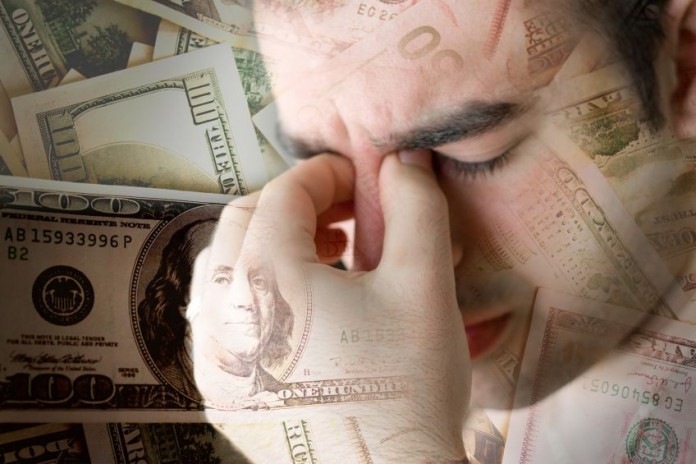When money anxiety is high, people expect to win four times the amount they could lose in order to take a financial risk. Normally, twice the amount will be acceptable.
Everyone likes to win and no one likes to lose. But in reality, we must accept both because there is always an element of uncertainty in everything we do. Moreover, accepting the reality of uncertainty is easy, but dealing with the emotional weight of a lose is much harder. How much harder? Well that depends on our level of money anxiety.
The reason we hate to lose more than we love to win in the first place is because a monetary gain or loss triggers an emotional reaction. We are very joyful when we win, but when we lose, we find it harder to get over the emotional impact of a loss. However, according to scientific research, we are willing to take the chance of losing for the right price.
In their landmark research – Prospect Theory, Noble laureate Daniel Kahneman and Amos Tversky state that a person will be willing to accept the emotional weight of a possible lose if the wining amount is twice as much in an equal chance bet. In other words, if a person can lose $100 on a bet that has 50 percent chance of winning and 50 percent chance of losing, that person is likely to take the chance if the winning amount is $200.
That is definitely the case under normal levels of money anxiety, but not when our level of money anxiety is high. In research that I conducted and published in my book Money Anxiety, I show that during times of high money anxiety, such as during and in the aftermath of the Great Recession, people were much more risk averse and therefore, they were willing to take the chance of losing only if the expected winning amount was four times higher.
Think about your own experience. When would you be willing to take greater financial risk – during normal economic times or during recessionary times? Clearly the answer is the former simply because when the economy is doing well we feel more confident and are willing to take greater chances. Conversely, when the economy is in a recession, and money is hard to come by, our level of money anxiety increases and we are less likely to take financial chances.
There is, of course, the other side of the coin, when people are willing to take greater financial risks during times of very low money anxiety, which we experienced during the book years of the mid 1960. My research shows that during times of low money anxiety, people are willing to take a chance of winning or losing the same amount. In other words, in very good times, when money is no object, it’s much easier for us to get over the emotion of losing because, well, there is much more where this one came from.
Find a Home-Based Business to Start-Up >>> Hundreds of Business Listings.

















































